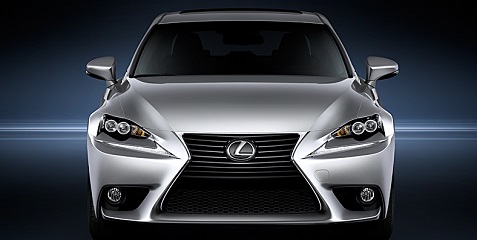Perfect Match: Finding the Right Car for Your Lifestyle

It’s not always the best idea to be swayed by a particular make or model of vehicle just because you happen to like it. Most people buy vehicles on emotion – the color strikes an emotional chord, they get wrapped up in the engine specs, or they have an emotional attachment to the manufacturer.
But, most of the time, it works out better if you choose a vehicle that suits your lifestyle. Here’s how to get the right vehicle without paying a premium for non-essential emotional “features.”
Will You Be Hauling a Family Or Construction Equipment?
What kind of cargo will you be hauling? If you just need something for your family, you can get away with a smaller vehicle and lower horsepower. That’s going to save you some money right off the bat.
If you need a commuter to get back and forth to work, you can get away with an even smaller vehicle.
If you’re a bit on the young side, and you want something flashy to attract guys or girls, you’re going to spend more – hey, we’ve all been there.
For many people, gas mileage is a real concern. And, unfortunately, you tend to pay more for the latest technology that promises to save you money at the pump. But, the long-term payoff might be worth it.
Choosing Your Form Factor
Do you need a sedan, coupe, SUV, convertible, or a hybrid? Well, that depends on what you need from the vehicle. Hybrids are, of course, good for the eco-friendly person, and they are great on gas. Some now come equipped with an all-electric motor, meaning that you never need to fill up at the pump. Of course, you do need to fill up at an electric station and those aren’t always available.
Convertibles aren’t very practical vehicles but they sure are fun. These tend to be more for young people and men going through a mid-life crisis.
SUVs have become the default family vehicle, next to vans. Either one will do, and they’re perfect for families of three or more. If you have four children, they’re almost a necessity.
A coupe is a single-person vehicle for the most part. But, because they tend to have spacious front leg-room, and minimal backseat room, they can be fine for a starter family (one kid only, as long as they’re still toddler-sized).
A sedan is a super-practical vehicle for small families (2 kids or under), and they’re traditionally 4-door vehicles, meaning it’s easy to get the kids in and out.
How Much Do You Want To Spend?
There are a lot of Used Cars at traversautos.com that you can use to base your price off from, and at the end of the day it’s all about how much you’re willing to spend for the features you want and need.
You know your budget, how much savings you have, and any contingency plans you have in case that income is wiped out.
Most vehicles will run you upwards of $30,000 if you’re looking to buy new. Which is why many people don’t buy new. They buy used. Fortunately, the used car market is flush with vehicles, priced between $10,000 and $20,000 for budget-conscious consumers. If you can squeeze out another $5,000, you can get a like-new vehicle minus the depreciation hit.
Hit Up The Forums
Before you step foot on a dealer’s lot, hit up internet forums. Seriously. Forums are the new review sites. And, unlike review sites, forums tend to be interactive and paid shills are outed pretty quickly.
Forums can give you the inside track on what makes and models are having problems with TSBs (technical service bulletins) and which vehicles are good buys.
A TSB is the main concern for many new car buyers, because the bulletins highlight known manufacturing defects that will be covered by the manufacturer. The reason a TSB list is so important is that it can give you a rough approximation of the quality of that make and model vehicle. Sure, it’s not going to tell you everything, but if a car has 20 bulletins, it might mean that either the engineering was terrible that year or the manufacturer’s quality standards are slipping.
Knowing that in advance can save you literally thousands of dollars in unexpected costs, since not all TSBs are fully covered or will be fixed by shops free of charge – especially if the shop is unable to reproduce the problem in the shop even though it happens while you drive.
David Ramirez is a procurement executive for a multi-national company. He is always pleased to be able to provide some useful insights with an online audience. You can find other articles by him across several different websites.





